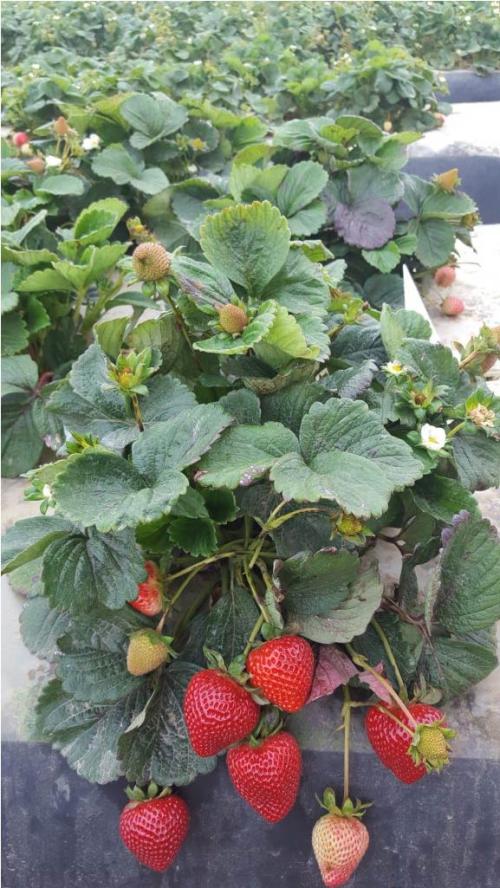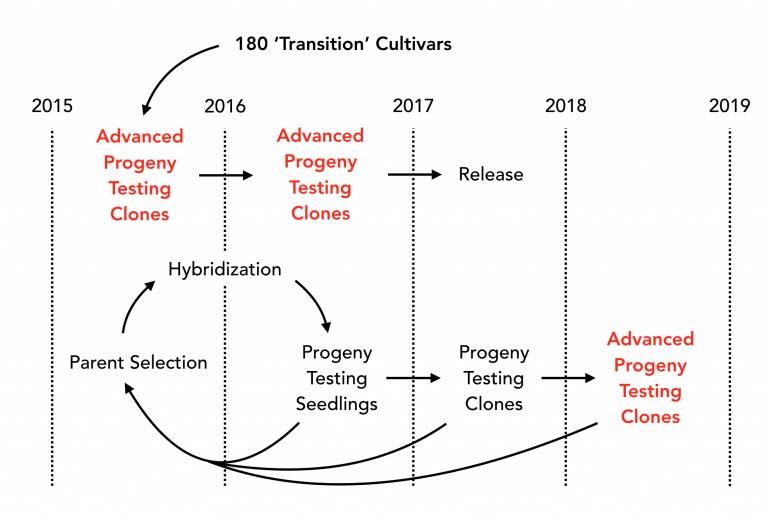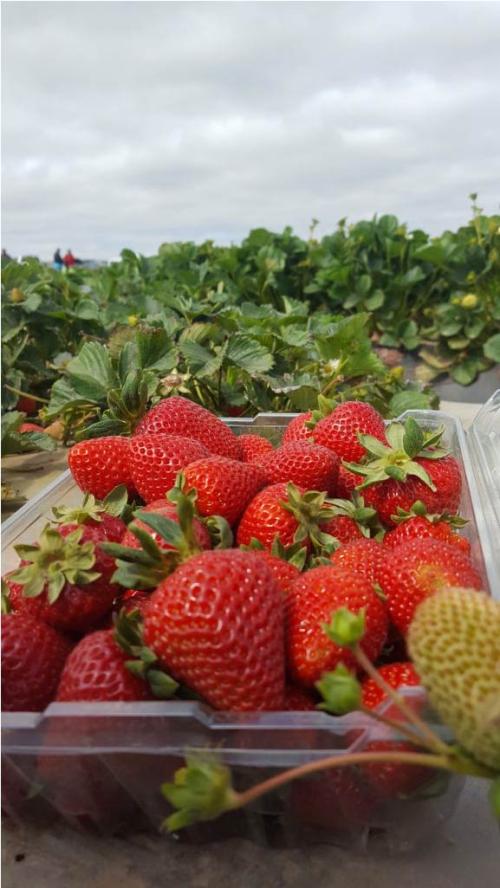


The Strawberry Breeding Program at the University of California, Davis has a rich history. Since the 1920s, this program has served the California strawberry growers and their need for new and improved berry cultivars. The UC Davis Strawberry Breeding Program and Research Group continue that tradition today.
To date, we have:
- Completed an in-depth analysis of pedigrees and history to inform parent selection
- Selected parents to build on historically successful pedigrees
- Made numerous crosses for both short-day and day-neutral types
- Sampled genetic diversity in the UC collection broadly
- Developed families to identify heterotic patterns and leverage in future breeding efforts
- Released 12 commercial varieties since 2015 which improved productivity, disease resistance packages, and fruit quality
To achieve this, we have extensively trialed thousands of accessions for plant productivity, shelf-life, fruit quality, and disease resistance in on-farm and in-field trials in California's Davis/Winters, Watsonville/Salinas, Santa Maria, and Ventura/Oxnard locations. We continue to partner with commercial growers and nurseries to ensure that the on-farm data we produce accurately reflects what growers around the state may observe.
The program continuously develops and tests low-to-high-density genotyping solutions in collaboration with third-party vendors for:
- Marker-assisted selection (MAS)
- Genomic prediction and selection
- Parentage assignment and confirmation
- Diversity analyses
- Loci discovery associated with traits of interest
This work was enabled by our efforts to sequence and assemble the first high-quality octoploid reference genome of cv `Camarosa` (published in 2019) and the first haplotype-phased octoploid reference genome of cv `UCD Royal Royce` (made available in 2020). We continue to use these tools and to produce high-quality genetic and genomic resources to improve our ability to identify and study genes and alleles associated with disease resistance and fruit quality and to support the strawberry genomics community.
We are open to new ideas and new collaborations that can enable us to learn about fruit bearing habit, fruit quality and composition, and disease resistance and to solve existing and emerging problems for the strawberry industry. If you want to collaborate with us or join our group, don't hesitate to contact us.